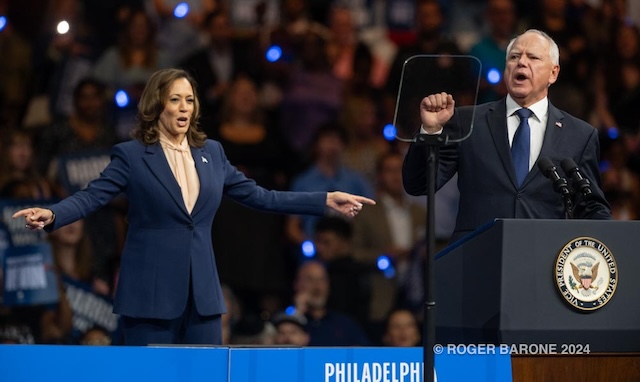The Presidential Election: Hobson’s Choice
The Democratic and Republican parties and presidential candidates seem to be unaware that following successful years-old strategies does not mean that such approaches will lead to success either in winning an election or in governing.
The weeks of avoiding press conferences or just answering questions, likely to be followed by weeks of few such confrontations, may seem attractive to Vice President Kamala Harris. This is because the public avoidance plan of President Biden, under whom she had worked for three and ½ years, didn’t come a-cropper until that infamous June 27 debate this year when all of his previously ignored neurological-rhetorical problems manifested themselves, leaving his reliable CNN supporters in unanimous panic.
No, Harris, the ostensibly avid pro-democracy candidate who avoided primaries and much consultation in choosing her vice president, over two weeks following her nomination hears nothing but huzzahs and positive reactions, and she would not crumble, Biden-like, as long as she avoids tough questions from perceived neutral press sources.
And neither would Vice Presidential candidate Gov. Tim Walz – until and if he and Harris have to deal with questions regarding their half-hearted support for Israel; her AWOLness on Biden’s assignment that she deal with the border crisis; his opposing treating illegal immigrants as criminals; her opposition to and then support of fracking; his making Minnesota a sanctuary state; her comparing ICE to the KKK; his delayed deployment of the national guard to confront violence in Minnesota; her ineptitude in dealing with inflation; his support for making Minnesota a “trans refuge,” protecting minors’ gender surgeries and providing access to menstrual products in school restrooms irrespective of age and gender; and her 2020 and beyond support for police de-funding.
So the answer is the Trump-Vance ticket?
Not so fast. Donald “I Can Do It All and Don’t Need No Stinkin’ Primaries” Trump doesn’t get many tough questions either.
And Vance’s incredibly thoughtless and insulting labeling of leading Democrats as “a bunch of childless cat ladies” shows bad, bad political instincts. His rejoinder to the criticism that he was being sarcastic was insufficient, to say the least.
Trump and J.D. Vance consistently point to the fact that the head of the ticket, Trump, was so successful in his term as president that he will simply repeat that success.
As I wrote in The Baltimore Sun months ago, “His assumption that he doesn’t have to change the successful policies of his presidency to accommodate changes in the world since then would spell disaster for world peace.”
What’s he going to say to Russian President Putin, “You recall how you didn’t invade Ukraine when I was president? Okay, then get out now.”
What’s he going to say to Chinese President Xi? “I’m back, so renege on your oft-repeated promise to take over Taiwan.”
How are Trump and Vance going to round up 10,000,000 million illegal immigrants?
How through presidential powers are they going to make the streets safe?
What are they going to say about women’s right to abortion that will be understood as reasonable by those who don’t trust any Republicans?
There are no easy answers; it just seems as if there are.
Vote and support the team you think has the best chance to make our country solvent and secure and make our enemies think we are willing to act to secure our interests without our having to act to do so.
Tough choice: Mine would have been a Rubio-Haley ticket.

Richard E. Vatz https://wp.towson.edu/vatz/ is a Distinguished Professor Emeritus of political rhetoric at Towson University and author of The Only Authentic of Persuasion: the Agenda-Spin Model (Bookwrights House, 2024) and over 200 other works, essays, lectures, and op-eds. He is the benefactor of the Richard E. Vatz Best Debater Award at Towson. The Van Bokkelen Auditorium at Towson University has been named after him.


Often, this situation arises when the candidates presented do not fully align with voters’ values or expectations, leading to a decision based more on strategic choice than genuine preference.
Thanks.
The term “Hobson’s Choice” aptly describes the dilemma faced in presidential elections where voters feel they have no real option but to choose the “lesser of two evils.” Often, this situation arises when the candidates presented do not fully align with voters’ values or expectations, leading to a decision based more on strategic choice than genuine preference. This scenario underscores the broader challenge in democratic systems: finding candidates who resonate with a diverse electorate and offer meaningful, positive change. As we navigate these choices, it’s crucial to engage in the political process and advocate for candidates who better represent our collective aspirations.